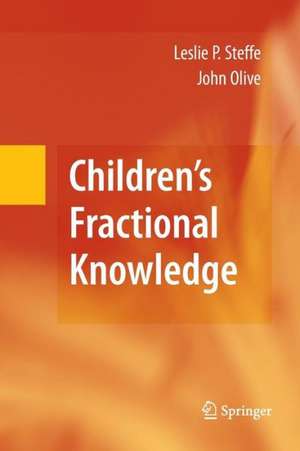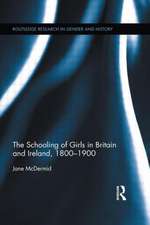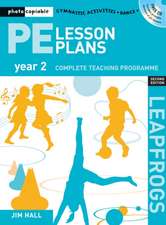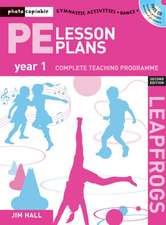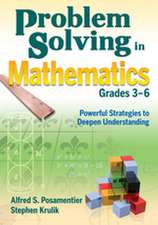Children's Fractional Knowledge
Autor Leslie P. Steffe, John Oliveen Limba Engleză Paperback – 3 sep 2014
These case studies provide a singular journey into children’s mathematics experience, which often varies greatly from that of adults. Moreover, the authors’ descriptive terms reflect children’s quantitative operations, as opposed to adult mathematical phrases rooted in concepts that do not reflect—and which in the classroom may even suppress—youngsters’ learning experiences.
Highlights of the coverage:
- Toward a formulation of a mathematics of living instead of being
- Operations that produce numerical counting schemes
- Case studies: children’s part-whole, partitive, iterative, and other fraction schemes
- Using the generalized number sequence to produce fraction schemes
- Redefining school mathematics
| Toate formatele și edițiile | Preț | Express |
|---|---|---|
| Paperback (1) | 644.95 lei 6-8 săpt. | |
| Springer Us – 3 sep 2014 | 644.95 lei 6-8 săpt. | |
| Hardback (1) | 651.34 lei 6-8 săpt. | |
| Springer Us – 4 dec 2009 | 651.34 lei 6-8 săpt. |
Preț: 644.95 lei
Preț vechi: 758.77 lei
-15% Nou
Puncte Express: 967
Preț estimativ în valută:
123.42€ • 131.97$ • 102.90£
123.42€ • 131.97$ • 102.90£
Carte tipărită la comandă
Livrare economică 18 aprilie-02 mai
Preluare comenzi: 021 569.72.76
Specificații
ISBN-13: 9781489984661
ISBN-10: 1489984666
Pagini: 388
Ilustrații: XXIII, 364 p.
Dimensiuni: 155 x 235 x 20 mm
Greutate: 0.54 kg
Ediția:2010
Editura: Springer Us
Colecția Springer
Locul publicării:New York, NY, United States
ISBN-10: 1489984666
Pagini: 388
Ilustrații: XXIII, 364 p.
Dimensiuni: 155 x 235 x 20 mm
Greutate: 0.54 kg
Ediția:2010
Editura: Springer Us
Colecția Springer
Locul publicării:New York, NY, United States
Public țintă
ResearchCuprins
A New Hypothesis Concerning Children’s Fractional Knowledge.- Perspectives on Children’s Fraction Knowledge.- Operations That Produce Numerical Counting Schemes.- Articulation of the Reorganization Hypothesis.- The Partitive and the Part-Whole Schemes.- The Unit Composition and the Commensurate Schemes.- The Partitive, the Iterative, and the Unit Composition Schemes.- Equipartitioning Operations for Connected Numbers: Their Use and Interiorization.- The Construction of Fraction Schemes Using the Generalized Number Sequence.- The Partitioning and Fraction Schemes.- Continuing Research on Students’ Fraction Schemes.
Textul de pe ultima copertă
Children’s Fractional Knowledge elegantly tracks the construction of knowledge, both by children learning new methods of reasoning and by the researchers studying their methods. The book challenges the widely held belief that children’s whole number knowledge is a distraction from their learning of fractions by positing that their fractional learning involves reorganizing—not simply using or building upon—their whole number knowledge. This hypothesis is explained in detail using examples of actual grade-schoolers approaching problems in fractions including the schemes they construct to relate parts to a whole, to produce a fraction as a multiple of a unit part, to transform a fraction into a commensurate fraction, or to combine two fractions multiplicatively or additively.
These case studies provide a singular journey into children’s mathematics experience, which often varies greatly from that of adults. Moreover, the authors’ descriptive terms reflect children’s quantitative operations, as opposed to adult mathematical phrases rooted in concepts that do not reflect—and which in the classroom may even suppress—youngsters’ learning experiences.
Highlights of the coverage:
These case studies provide a singular journey into children’s mathematics experience, which often varies greatly from that of adults. Moreover, the authors’ descriptive terms reflect children’s quantitative operations, as opposed to adult mathematical phrases rooted in concepts that do not reflect—and which in the classroom may even suppress—youngsters’ learning experiences.
Highlights of the coverage:
- Toward a formulation of a mathematics of living instead of being
- Operations that produce numerical counting schemes
- Case studies: children’s part-whole, partitive, iterative, and other fraction schemes
- Using the generalized number sequence to produce fraction schemes
- Redefining school mathematics
Caracteristici
Original work on children's construction of fractional knowledge Provides new research on how the teaching of fractions can be dramatically improved Written by pioneers in mathematics education
